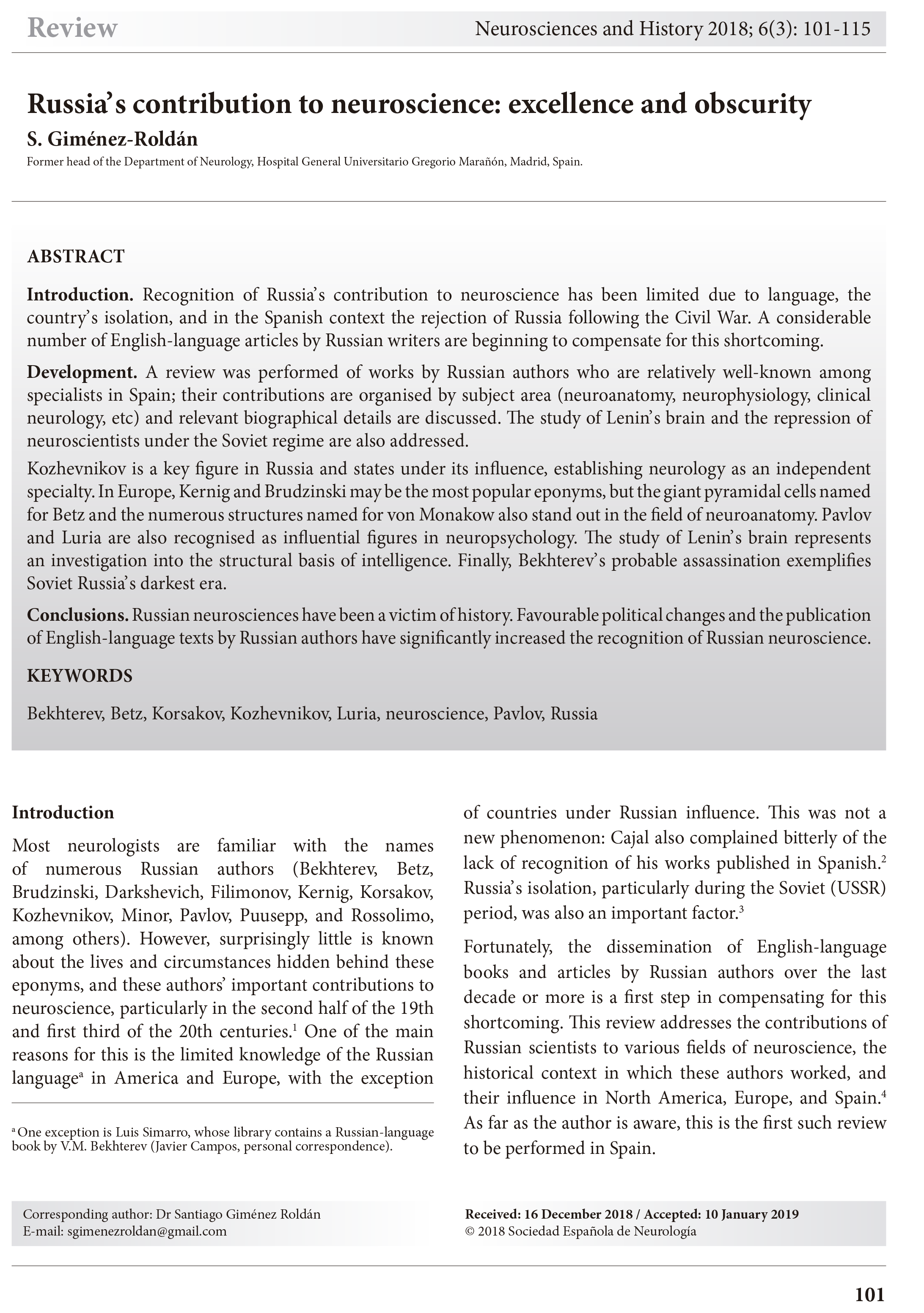
Volume 12
Num. 1 | January-March 2024
Num. 2 | April-June 2024
Num. 3 | July-September 2024
Num. 4 | October-December 2024

Volume 11
Num. 1 | January-March 2023
Num. 2 | April-June 2023
Num. 3 | July-September 2023
Num. 3 | October-December 2023

Volume 10
Num. 1 | January-March 2022
Num. 2 | April-June 2022
Num. 3 | July-September 2022
Num. 4 | October-December 2022
Available Now!
Issue 4 of Neurosciences and History is now available. Don’t miss the opportunity to read our latest research articles on the history of neurology.
Browse Volume 12Issue 4 belongs to Volume 12, 2024.
Browse volumes and issues in the “latest issues” section

Guardar
Guardar
Russia’ s contribution to neuroscience: excellence and obscurity
 S. Giménez-Roldán
S. Giménez-RoldánNeurosciences and History 2018; 6(3): 101-115
Type of article: REVIEW
AUTHOR
S. Giménez-Roldán
Former head of the Department of Neurology, Hospital General Universitario Gregorio Marañón, Madrid, Spain.
ABSTRACT
Introduction. Recognition of Russia’ s contribution to neuroscience has been limited due to language, the country’ s isolation, and in the Spanish context the rejection of Russia following the Civil War. A considerable number of English-language articles by Russian writers are beginning to compensate for this shortcoming.
Development. A review was performed of works by Russian authors who are relatively well-known among specialists in Spain; their contributions are organised by subject area (neuroanatomy, neurophysiology, clinical neurology, etc) and relevant biographical details are discussed. The study of Lenin’ s brain and the repression of neuroscientists under the Soviet regime are also addressed.
Kozhevnikov is a key figure in Russia and states under its influence, establishing neurology as an independent specialty. In Europe, Kernig and Brudzinski may be the most popular eponyms, but the giant pyramidal cells named for Betz and the numerous structures named for von Monakow also stand out in the field of neuroanatomy. Pavlov
and Luria are also recognised as influential figures in neuropsychology. The study of Lenin’ s brain represents an investigation into the structural basis of intelligence. Finally, Bekhterev’ s probable assassination exemplifies Soviet Russia’ s darkest era.
Conclusions. Russian neurosciences have been a victim of history. Favourable political changes and the publication of English-language texts by Russian authors have significantly increased the recognition of Russian neuroscience.
KEYWORDS
Bekhterev, Betz, Korsakov, Kozhevnikov, Luria, neuroscience, Pavlov, Russia
Neurosciences and History 2018; 6(3): 101-115
Editorial Secretary
Neurosciences and History
Archivo Histórico de la Sociedad Española de Neurología
C/ Casp, 172, 1A 08013 – Barcelona
Tlf.: +34 933426233.
E-mail: archivo@sen.org.es







